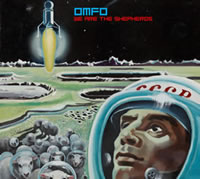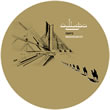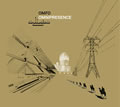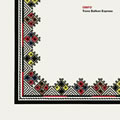Ahilea feat. Bella Wagner -
Devil's Eyes
Amsterdam Klezmer Band
>Mokum
>Katla
>Zaraza
>Remixed
Baba Zula - Gecekondu
Baile Funk
>Baile 1
>Baile 2
Balkan Beat Box
Binder Krieglstein
>New Weird Austria
>Alles Verloren
Boom Pam
>Puerto Rican Nights
>Boom Pam
Jewrhythmics
>Jewrhythmics
>Misirlou e.p. - vinyl
Mi Loco Tango
>Cinema Paradiso
>Del diablo y del Angel
OMFO
>Omnipresence
>Baghdub - vinyl
>We Are the Shepherds
>Transbalkan Express
Señor Coconut
>El Baile Aleman
>Fiesta Songs
>Around the World
>Yellow Fever
>Behind the Mask - vinyl
Shantel
>Kosher Nostra
>Authentic
>Planet Paprika
>The Edge of Heaven
>Disko Partizani
>Bucovina Club 1
>Bucovina Club 2
Rotfront
>Visa Free
>Emigrantski Raggamuffin
Tobias Rüger Quartet
Ilija Trojanow
Vesna A New One
MUSIC


CD RELEASE
OMFO
We are the Shepherds
Cat.-No.: AYCD 12
Produced by Atom™ and Amsterdam Klezmer Band
File under: Village Disco or Space Folklore
O.M.F.O.–Our Man from Odessa–is the master of crossover par excellence. Born in the port of Odessa (Ukraine), German Popov emigrated to Amsterdam in 1989. As an explorer, German Popov loves to travel around Central Asia making live recordings of everything from the traditional songs and melodies of the steppes to the modern restaurant bands of Tashkent with their tinny keyboard sound. So welcome to electronic Walachia, where folk meets Kraftwerk and where bizarre instruments and electronic sounds combine to create a whole new musical dimension. With his ideas and his musicians he bravely goes where no human ear has dared to go before. Futurism meets folklore imaginaire: Ladies and Gentlemen, we are floating in Eastern European space.
His first album on the Essay Recordings label, Trans Balkan Express, put him in the international spotlight and none other than Borat has chosen two tracks from the album - "Money Boney"and "Magic Mamaliga" - for the soundtrack of his latest film.
We are the shepherds…
A manifesto by OMFO
Comrades, It is no coincidence that the first man in space Yuri Gagarin was a shepherd. As a matter of fact, most of the cosmonauts were shepherds as well as some of their American colleagues like, for example, the astronaut William Shepherd. And what about the shepherd dog Laika? Who would not have longed to hear it bark from the orbit…? Is it all a coincidence? Certainly not! Here is the explanation: The USSR was the first country to put man into space. At the same time the Soviet Union was the first country in the world to give absolute political power to workers, peasants and…. Yes! Shepherds!
Owing to Pure Shepherds' Logic (PSL), also known as the Logic of Shepherd, which they efficiently applied to everything around them, shepherds have been extremely successful throughout human history. By means of flying machines and rockets they have expanded their pastures to the limits of the stratosphere and beyond. Shepherds, stars and the Milky Way have always been good friends. The sound of a shepherd's flute has often accompanied the flight of falling meteors and lunar eclipses.
Eventually, shepherd tunes enriched by the beeping of the Morse code, have dissolved into pulsating clicks and bubbly electronic sounds, making up the Space symphony that glorifies the primordial beauty of shepherd live. This is an album for present day shepherds. You can enjoy listening to the tunes, when you are on your own or immersed in your shepherd thoughts and fantasies. But you can also dance to the melodies in a circle of your fellow shepherds or shepherdesses. The incessant rhythmic pulsations, captivating tone colours and special effects, produced by electronic and acoustic instruments, as well as the unpretentious and plain melodic patterns sound a bit unusual but definitely very contemporary. Even your flock of sheep might experience a cosmically unreal and transient state, which can eventually result in an exceptionally good production of milk'n'wool.
When Shepherds fall in love they sing… The melodies of their songs are slow and melancholic. The lyrics is naïve and beautiful. When in outer space, far away from local discotheques, their creative spirit awakens and they invent new musical instruments. Their simple drums, flutes and mouth-harps become theremins, synthesizers and sampling sequencers. This is how old songs are transformed and updated, gaining a new meaning in a new environment. And where do we go from here? It is a question we are pondering over now. Shepherds of the Universe unite!
OMFO
To promote his projects, OMFO put together a line-up of five extraordinary people: the Transylvanian gypsy wunderkind Vasil Nedea on cimbalom and accordion, the Azeri sci-fi writer and virtuoso Rassul Kazimov on tar and guitar, the freedom fighter and storyteller Bakhtiyar Eybaliyev as percussionist and singer, often compared to a nightingale, and Fay Lovsky, The Lady from Beyond, who plays extremely rare instruments such as theremin and the singing saw, adding an eerie and mysterious mood to the music. All these musicians took part in the recording of We are the Shepherds.
The spectrum of OMFO's works is wide. He produces soundtracks
for adult video clips and composes jingles for Turkmen radio stations.
For the Venice biennale he wrote the soundtrack for the first ever
Central Asian pavilion. Also, OMFO gives solo concerts and performs as
a sound artist, as well as collecting field recordings. OMFO is now
looking forward to your comments and suggestions….
Atom™ on OMFO and their collaboration
When listening to OMFO for the first time, I was surprised about the fact that someone was working on a similar "theme" with me, yet dedicated to a totally different cultural zone. At first glance, what OMFO does seems to be so far away from, for example, my work with Sr. Coconut, Lisa Carbon or projects such as "Flanger", yet to me that difference does not really exist. It is music that somehow denies the dominance of certain cultural stereotypes by bending and twisting them into something that appears to be familiar, yet isn't. It is music that questions both familiar locations in time and space and expands them towards new horizons. Musical themes and topics that seemed to be lost in time and were already closed away in dark, abandoned closets of history are brought back as a valid option, as a new path we may start to take NOW. At the same time what we are listening to evokes a certain doubt inside us: is it fiction, or fact? We seem to be able to pin the music down to a territory or, if not that, at least to a historical moment, while at the same time we can not be 100% sure if it is reality talking, or just what we think reality is...a mere projection born deep inside us, fuelled by longings or prejudice. On a purely musical level OMFO knows which territories, both in form and content, he is walking through and this is what enables him to be playful.
The production was done entirely by sending audio data back and forth between Amsterdam and Santiago and hundreds of phone conversations, talking about which steps to take for which songs. In spite of the distance, I think we developed the final picture of the album together, inspiring us back and forth, playing verbal and non-verbal "ping pong" of ideas. Santiago, 11/09/2006
TRACKLIST
01. Choban in Space 5:18
02. Shepherd Disco 3:46
03. Jok de doi 4:24
04. Drunk'n'Space (Mad Volinka) 2:33
05. Orbital Hora 4:43
06. Neobiknovennije Glaza 3:36
trad./arr. by German Popov
07. Azerbaidjan 3:16
trad./arr. by German Popov
08. Tequila Gang Bang 1:23
Chuck Rio / Windswept Pacific Entertainment Co
09. Dagistan 3:40
10. Utomljonnoje Sontse 3:44
Music: Jorge Petersburski/Lyric Zenon Ludwik Friedwald
11. Oxamit 3:33
12. Voskresenie 3:04
13. Flujerash 2:19
14. 2007 Baran Odissey 5:05
All tracks music & lyrics unless otherwise indicated by German
Popov/Edition Essay
The press on OMFO's "Trans Balkan Express"(Essay Recordings AY CD 02)
Could German Popov be the Señor Coconut of the Balkan states? Our Man From Odessa is armed with a trusty 808, a vocoder and lots of digital synths to create a disc that is both entirely sincere and a freakin' riot at the same time. One could imagine these ultra clean digital versions of traditional and post-modern Balkan sketches being PSAs on a state run radio station or a floor-filler in some breathlessly hip Brooklyn club. I've yet to hear a neo-electro album that so successfully balances the robotic fun of drum machines with such inspired songcraft. It's not all whimsy though_ "Cucoo Dub" is one of the great dub tracks so far this year. (Exclaim)
With flutes and stringed instruments, Jamaican dub techniques, laptop producing, kosmonautic lyricism and electronic sound engineering, Trans Balkan Express mixes the musical spice of the Southeastern European provinces with the club culture of the West. O.M.F.O. travels from Amsterdam via Berlin to the hinterlands of the EU, the Karpates, the Black Sea, right into the front garden of Asia. The result is an album featuring music located somewhere in-between space and a Balkan wedding, happily ignoring musical boundaries of any kind. Trans Balkan Express is where modernism dances with tradition, and where the "old" Europe flows into the "new." (Tonevendor)
Is there such a thing as traditional Eastern European electronica? There is now! The album varies from knees up music to soft and gentle, beautiful melodies, but all done in such a unique style. You're unlikely to hear anything quite like this anywhere else. (smallfish.co.uk)
A great album and one of the best examples of how tradition with modern rhythm makes a perfect marriage. (Progressive Homestead) German Popov pulls off a startling stunt here. The Kraftwerk nod of the title hints at what's inside - sharply flavoured East European instruments and melodies getting a highly tweaked electro treatment. Add to that a penchant for Jamaican riddims and dub production and you've got an incongruous amalgam that works amazingly well. (Rupert Bottenberg/Montreal Mirror)
Artist's website: www.omfo.net
OMFO - Biography
OMFO is German Popov's stage name. He was born in 1966 in the port city of Odessa, USSR. Growing up in the biggest country in the world and being brainwashed by communist propaganda he proudly marched through the glory and misery of Soviet reality until all this came to an end. Unable to endure the pain inflicted by Perestroika G. Popov headed for the west, arriving in multicultural Amsterdam - a city associated with tolerant cannabis policy and frivolous behaviour. That was where G. Popov rediscovered the rich cultural inheritance that was left to him by the past. Utopian ideology, the moral and cultural decay of the Brezhnev era, the pathos of space exploration and ethnic diversity: all this made him ready to become OMFO. G. Popov began his musical career playing gangster ballads and prison epics in caviar restaurants and fugitive hangouts together with Alec Kopyt. Taking advantage of world music lovers they played under the name The Children of Lieutenant Schmidt. After a while when this became no longer tenable G. Popov shifted his focus of interest towards space and cosmonauts. Jointly with a group of Soviet expatriates he created a band called Sputnik. Noticed by the adepts of electronic extravaganza Sputnik soon released their only album The Favorite Songs of Soviet Cosmonauts. While the band was beeping around glamorous clubs and private parties G. Popov explored another musical path - folklore. During one of his solo performances he was approached by a producer of a major Dutch new age label, who offered him his studio to make a recording. Shortly after, Oreade Music released an album under the mysterious name Isiric. To G. Popov's surprise this work was classified by the label as Worlds Healing Music. In contradiction to this classification, the album continues to inspire young intellectuals to experiment with psychedelic substances all over the former USSR. The secret of its popularity hides behind the Russian lyrics of exotic Siberian and Central Asian melodies, skilfully played on weird instruments and sung with quaint vocal techniques. Probably this was when G. Popov fully realized the inseparable unity of ethnic wisdom and electronics as a true folklore of the 21st century.
As the Nineties were wrapping up their legacy OMFO focused on his solo project Our Man from Odessa, collaborating with various electronic labels. Most of his early works were released on the small Dutch label Kidnap, founded and run by members of the ex-Soviet diaspora. During this period he also collaborated with a controversial diva from the remote republic of Tuva – Sainkho Namchilak - travelling the world and playing at big international venues.
As the new millennium kicked in, G. Popov and his friends found a new platform for their futuristic vision of sound and music. This is how Solaris was born. Presented not as record label, but as an art lab, this project was clearly inspired by Russian constructivism and utopian romanticism. The glamorous alias Our Man from Odessa gradually turns into the more succinct and enigmatic OMFO. During this period, OMFO comes into creative contact with projects and artists such as Metamatics, Aavikoo, Jimpster, CiM and Felix Kubin. All these names appeared on Solaris' releases such as Aelita, Cheap Electric Paradise and Omnipresence. Music distributors and record shop owners still treat these impeccably designed albums as collector's items. A few years ago OMFO was contacted by Vladimir Lomberg – a like-minded person who was invisibly present behind various projects including Solaris and Kidnap. He put OMFO in touch with Essay Recordings - a record label that is exploring the hidden potential of Eastern European music. OMFO's works began with a successful remix of a track written by Shantel – the man who pioneered the fusion of Balkan music with electronic beats. After the remix was included in the internationally acclaimed Bucovina Club album, OMFO was commissioned by Essay to work on his new album. Responding to the demand for something new in this field, OMFO created Trans Balkan Express. Shortly after its release this album became popular throughout Europe and beyond, scoring hits; it was played on the radio and covered by the mass media. Experimenting with fresh concepts and ideas, OMFO immediately distanced himself from the rest of the producers working in this genre. The peculiar and somewhat humorous vision of a Carpathian villager, playing a native tune on an analogue synthesizer, made OMFO's music natural and accessible for people from all walks of life and religious or ethnic backgrounds. Only this quality could attract an audience that includes criminals, shepherds, astronomers as well as taxi drivers and even terrorists. Regardless of the simplicity of the album, many music critics hailed Trans Balkan Express as cutting edge. The songs from Trans Balkan Express were licensed by other labels and included in various compilations. It also came to the attention of famous comedian Sasha Baron Cohen better known as Ali G. Two tracks from OMFO's album are about to be featured in the new 20th Century Fox film production Borat's Guide to America.
Due to its very strong Arabic influence, one track called Bagdub was not included on the album. It was released by Dorfmeister's G-Stone Recordings, becoming one of the most outstanding tracks of the "Dub Club"compilation. Last spring G. Popov was introduced to Uwe Schmidt himself, who is also know under the alias of Atom™or Señor Coconut. The Sound Wizard kindly agreed to participate in the production of the new OMFO's album. Separated by the Atlantic Ocean but united by a common goal, the two men started to exchange midi and audio files, to manipulate sounds, pushing to the limits of their software and hardware. As a result of their efforts, the album was ready within one month! Under the name We are the Shepherds, this project became the logical continuation of the previous Trans Balkan Express. The ironic reference to Kraftwerk in both titles was intended to underline the electronic concept of music.
To promote his projects, OMFO put together a line-up of five extraordinary people: the Transylvanian gypsy wunderkind Vasil Nedea on cimbalom and accordion, the Azeri sci-fi writer and virtuoso Rassul Kazimov on tar and guitar, the freedom fighter and storyteller Bakhtiyar Eybaliyev as percussionist and singer, often compared to a nightingale, and Fay Lovsky, The Lady from Beyond, who plays extremely rare instruments such as theremin and the singing saw, adding an eerie and mysterious mood to the music. All these musicians took part in the recording of We are the Shepherds.
The spectrum of OMFO's works is wide. He produces soundtracks for adult video clips and composes jingles for Turkmen radio stations. For the Venice biennale he wrote the soundtrack for the first ever Central Asian pavilion. Also, OMFO gives solo concerts and performs as a sound artist, as well as collecting field recordings. One of the new forms of using sound by OMFO is creation of a "sonic horoscopes"which are a peculiar way of linking astrology and music. In order to able to present his musical ideas avoiding European stereotypes he is constantly searching for the right venues and conditions to present his music to the audience. This brings OMFO in interaction with art galleries, theatres, cinemas, planetariums and botanical gardens.


